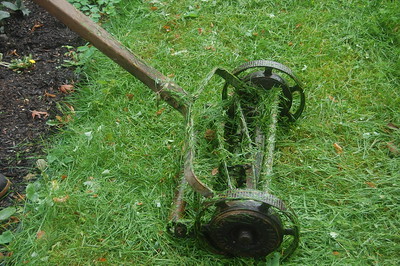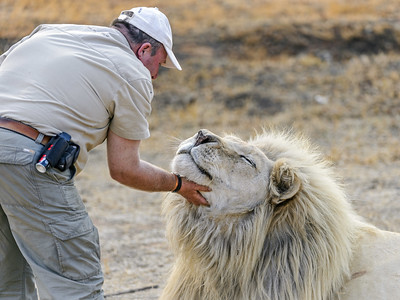Archive for May, 2022
Believe it or not, people’s capacity to do work is finite.
 When cars run out of gas, they can no longer get the job done until their tanks are filled up. And it’s the same with people, except people are asked to keep on truckin’ even though their tanks are empty.
When cars run out of gas, they can no longer get the job done until their tanks are filled up. And it’s the same with people, except people are asked to keep on truckin’ even though their tanks are empty.
When machines are used for a certain number of hours, they are supposed to be given rest and routine maintenance. If the maintenance isn’t completed as defined in the operator’s manual, the warranty is voided. Maybe we could create a maintenance schedule for people. And if it’s not done, we could be okay with reduced performance, like with a machine. And when the scheduled maintenance isn’t performed on time, maybe we could blame the person who prevented it from happening.
If your lawnmower could tell you when you were using it in a way that would cause it damage, would you listen and change your behavior? How about if a person said a similar thing to you? To which one would you show more compassion?
When your car’s check engine light comes on, would you pretend you don’t see it or would you think that the car is being less than truthful? What if a person tells you their body is throwing a warning light because of how you’re driving them? Would you believe them or stomp on the accelerator?
We expect our machines to wear out and need refurbishment. We expect our cars to run out of gas if we don’t add fuel. We expect our lawnmowers to stall if we try to mow grass that’s two feet tall. We expect that their capacities and capabilities are finite. Maybe we can keep all this in mind when we set expectations for our people.
“our ‘new’ lawnmower” by sharon_k is licensed under CC BY-SA 2.0.
Triangulation of Leadership
Put together things that contradict yet make a wonderfully mismatched pair.
Say things that contradict common misunderstandings.
See the dark and dirty underside of things.
Be more patient with people.
Stomp on success.
Dissent.
Tell the truth even when it’s bad for your career.
See what wasn’t but should have been.
Violate first principles.
Protect people.
Trust.
See things as they aren’t.
See what’s missing.
See yourself.
See.
“man in park (triangulation)” by Josh (broma) is licensed under CC BY 2.0.
Do you build trust or break it?
When someone tells you their truth, what do you do? Do you ask them to defend? Do you tell them what you think? Do you dismiss them? Do you listen? Do you believe them?
When someone has the courage to tell you their truth, they demonstrate they trust you. If you want to destroy their trust, ask them to defend their truth. Sooner or later, or then and there, they’ll stop trusting you. And like falling off a cliff, it’s almost impossible for things to be the same.
When someone confesses their truth, they demonstrate they trust you enough to share a difficult issue with you. If you want them to feel small and block them from sharing their truth in the future, tell them why their truth isn’t right. That will be the last time they speak candidly with you. Ever.
When someone reluctantly shares their truth, they demonstrate they’re willing to push through their discomfort due to the significance and their trust in you. If you want them to get angry, explain how they see things incorrectly or tell them what they don’t understand. Either one will cause them to move to a purely transactional relationship with you. And there’s no coming back from that.
When someone confides in you and shares their truth, you ask them to defend it, and, despite your unskillful response they share it again, believe them. And if you don’t, you’ll damn yourself twice.
When someone shares their truth and you listen without judging, you build trust.
When someone sends you a heartfelt email describing a dilemma and your response is to set up a meeting to gain a fuller understanding, you build trust.
When someone demonstrates the courage to share a truth that they know contradicts the mission, believe them. You’ll build trust.
When someone shares their truth, you have an opportunity to build trust or break it. Which will you choose?
Image credit — Christian Scheja
The Power of Praise
 Praise happens when you tell someone they did something wonderful. Praise is virtually free and almost the most powerful force in the universe.
Praise happens when you tell someone they did something wonderful. Praise is virtually free and almost the most powerful force in the universe.
When you tell someone what they did was amazing, they stand three inches taller. Right in front of you, they get taller. They grow. They expand. Don’t believe me? Try it. And bring a ruler.
To deliver praise, you must pay attention. You must invest in what’s going on, you must hear what is said, and watch what is done. Congratulations. Though you have yet to deliver praise, you’ve already differentiated yourself. Next, you must compare the behavior against the norms and recognize a difference. Sure, it’s a simple difference calculation, but it’s a calculation that takes attention and caring, which in today’s rat race are in short supply. Now, you must find words the right words to describe the specialness of the behavior-why it’s different and why it matters. Then, you’ve got to deliver it in a way that is worthy of the specialness.
Deliver praise in public and be specific. This person (use their name) did (say what they did) and it’s important because (and say why it is important). And tell people what you think and feel. They (use their name) did (say what they did) and I feel (e.g., happy, excited, proud) because (tell them why you feel as you do). Feel free to steal that script, but if you do, stick to it because it’s a good one.
A rule: If you don’t praise people, you don’t know what you’re doing.
But here’s the thing about praise. If you fake it, you bring about its opposite. When you fake it, people get smaller and they get angry. They get smaller because they know they are being patronized. And they get angry for the same reason. So, a word of caution. If you deliver paise that’s fake, you will lose all credibility with the recipient and anyone in earshot. And it’s such a violation of their dignity, I don’t know a way to resurrect their trust. In short, if you fake it, it’s over for you.
Another rule: If you have the urge to deliver fake praise, don’t.
Praise is powerful, but in today’s environment is almost extinct. It’s not that praise-worthy behavior is uncommon, rather, the time and attention required to recognize and formally acknowledge praise-worthy behavior is uncommon.
If you want to elevate the performance of a team, praise their behavior. And do it in public. Pay attention and praise. Schedule a meeting, buy the pizza, and praise. Be specific, be genuine, and praise.
Yes, you will spend a lot of money on pizza, and, yes, that is the best return on investment in the universe.
“Alex and his lion friend” by Tambako the Jaguar is marked with CC BY-ND 2.0.


 Mike Shipulski
Mike Shipulski